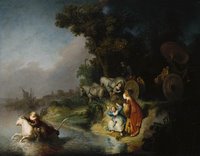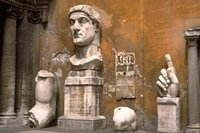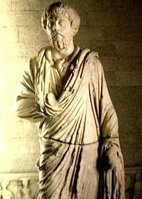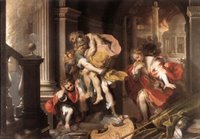
Most of the Greek and Roman myths you read in high school were retellings of stories from Ovid's
Metamorphoses. Choose your favorite myth and read Ovid's version of that myth. Read also one of the Ovid myths that you *hadn't* read before. Cite one example for each myth that shows particularly well Ovid's "insight into the human condition."
By the way, I loved your skits from today in class. If we have time Thursday, we'll try dramatizing an Ovid theme or two.
If you want to get the overall picture of the Metamorphoses, see this excellent
introduction and commentary by Larry Brown.
 The reign of Constantine is certainly an important turning point in the history of Rome and in the history of the church. Please read through the Edict of Milan (either the hard-copy I gave you, or the online edition here. Cite one line that particularly well shows a way in which Constantine changes things for the church.
The reign of Constantine is certainly an important turning point in the history of Rome and in the history of the church. Please read through the Edict of Milan (either the hard-copy I gave you, or the online edition here. Cite one line that particularly well shows a way in which Constantine changes things for the church.








